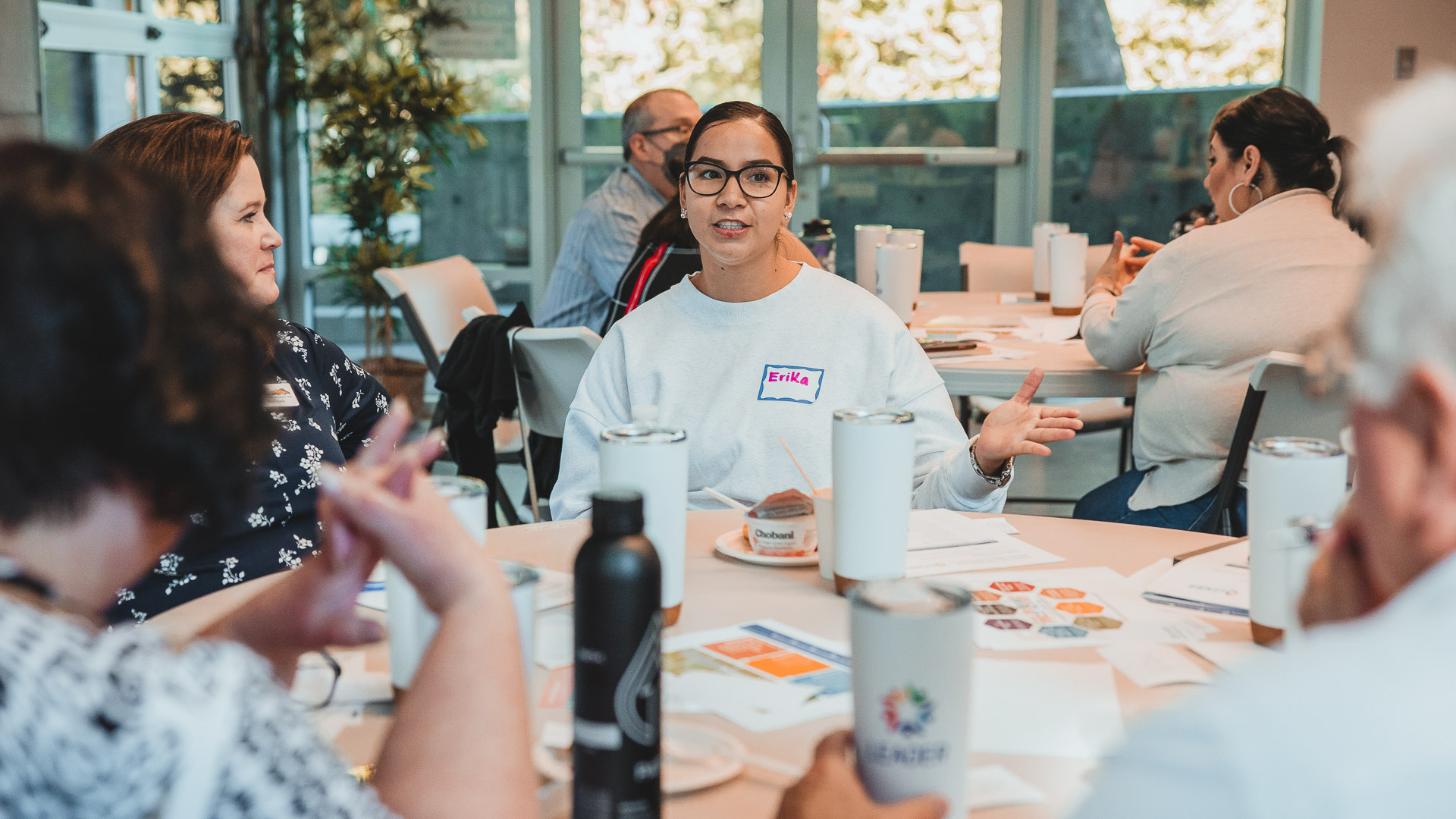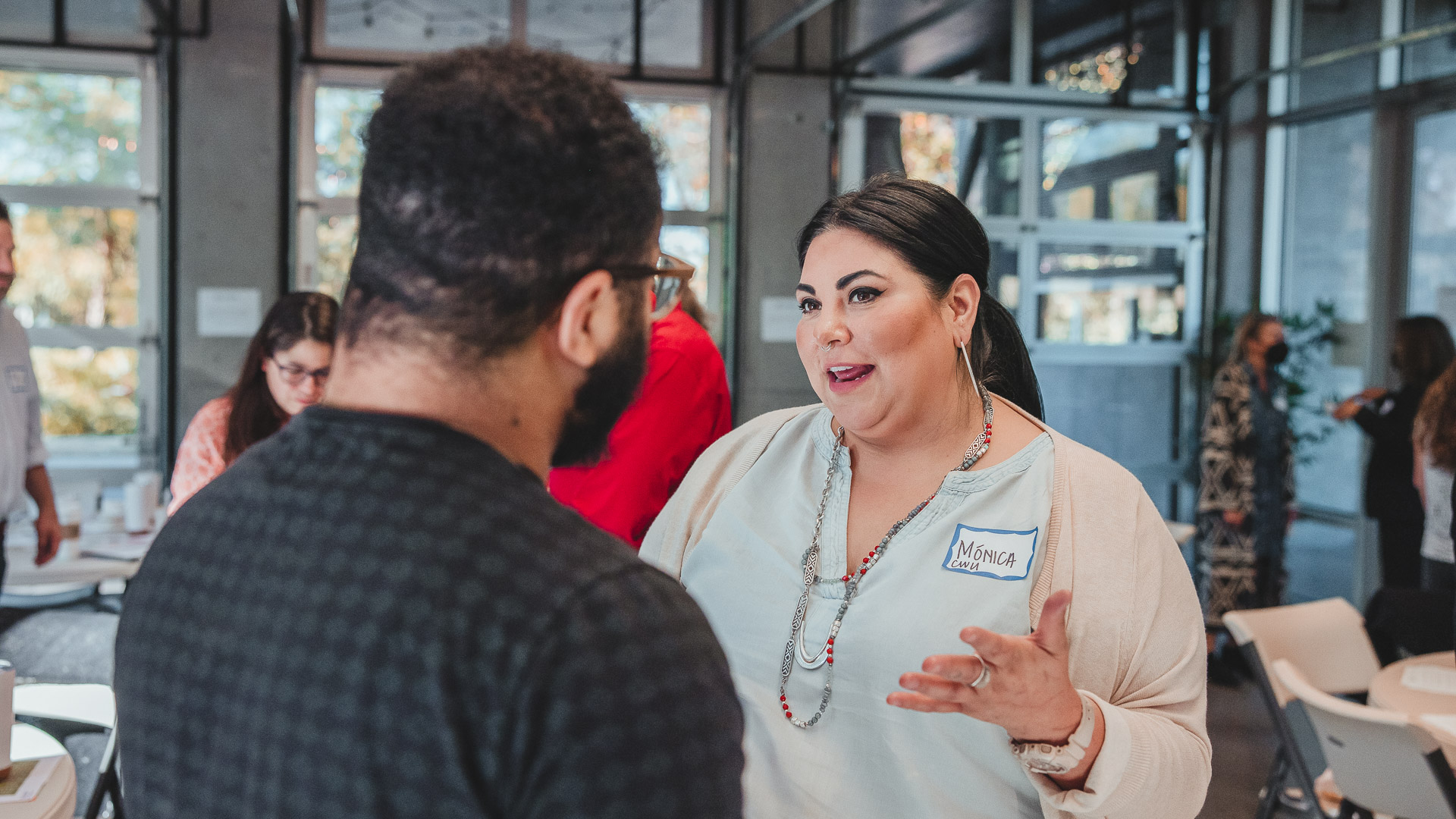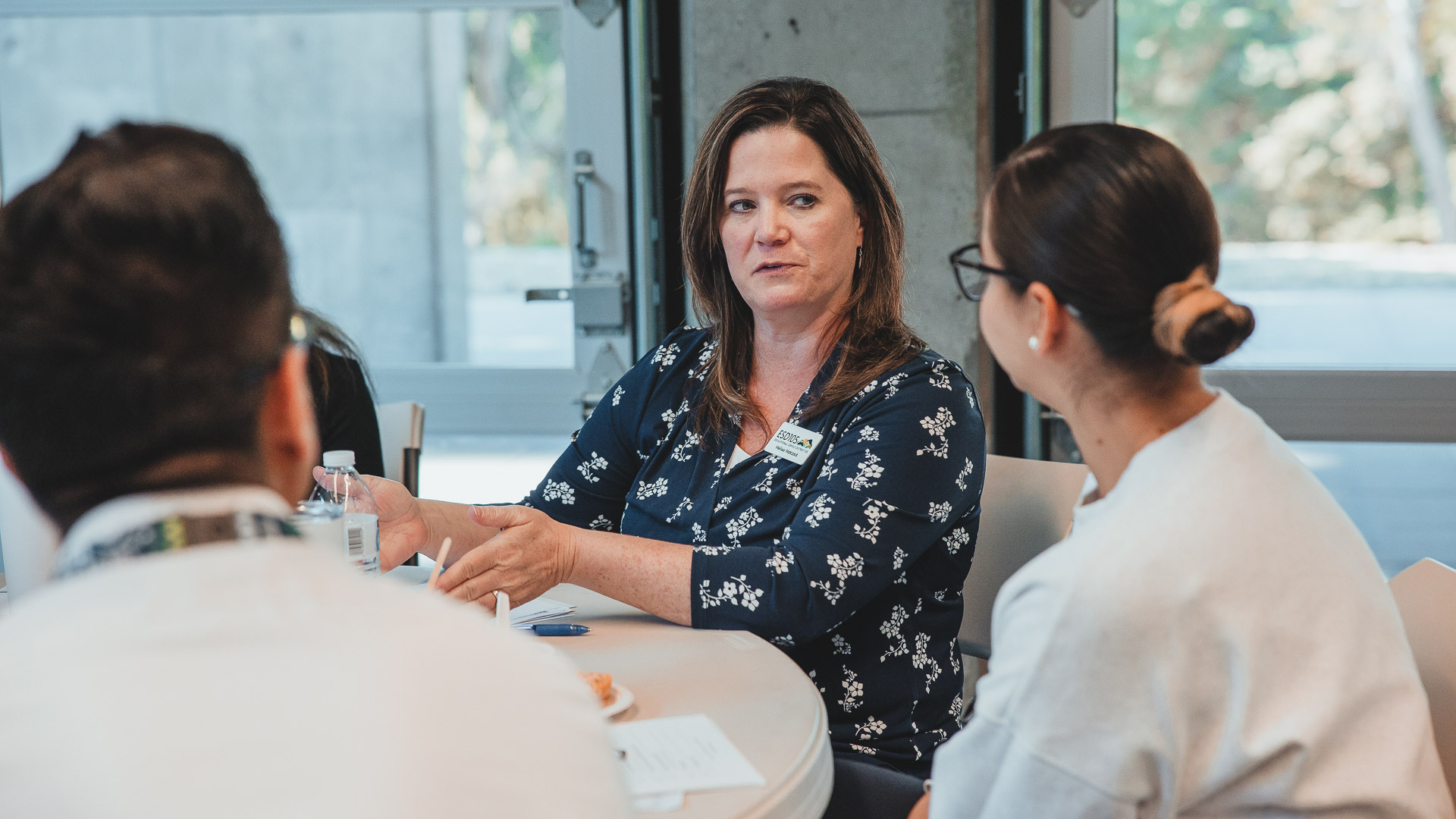
“I loved what I did as a bilingual para educator,” says Erika Ruelas, a transitional kindergarten teacher in Central Washington. “I was already changing the lives of my students, but I didn’t want to be at the back of the classroom. I wanted to be at the front.”
Now in her first year of teaching, she’s reached that goal, but it hasn’t been easy. “I’m a mom of two and married, so the hardest part is financially supporting myself throughout this journey,” she says.
The most challenging? Not earning money during her certificate program. “They made it seem like we couldn’t work and do our student teaching at the same time,” says Ruelas. “Now my credit cards are high, and getting out of debt is a struggle, even though I’m earning more.”
This at a time when there aren’t enough teachers. “On everyone’s mind is the shortage,” says Melissa Matczak, assistant director of special services at ESD 105, serving Central Washington where across 25 school districts nearly 65 percent of students identify as Hispanic. “We want to diversify the system and the workforce, but systemic issues and barriers mean that potential migrant, immigrant, bilingual or trilingual candidates, majority 1st or 2nd generation college students struggle or can’t do it.”
As a LEADER Initiative grantee, Matczak is helping to bring together many perspectives and efforts in the region focused on educator pathways. Examples include Career and Technical Education (CTE) high school programs, the recruitment of bilingual teachers at the larger school district of Grandview, the experience of teachers like Ruelas, teacher preparation programs at the university level and more.


Core team members are focused on figuring out who isn’t at the table, better connecting existing efforts, and understanding the barriers in order to remove them. “It’s overwhelming to think of a system broken in so many places,” says Matczak. “We want to pick one area, dive deep and do it well. We decided to focus on the candidate. How are we as a system doing justice to that pupil eventually, in preparing our educator (principal, para educators, counselors and teachers) and encouraging people of color to engage in this profession?”
“It’s a great opportunity to revamp the system to get people like para educators to that initial certification,” says Deena Alley, director of human resources at the Yakima School District and part of ESD 105’s core LEADER Initiative group. “It allows us to honor people connected with the district and community who already want to be here.”
“We have to develop a unified vision of what it means to be intentional as we attract leaders of color into teaching and on to administrating,” says Ken Bergevin, also with the LEADER Initiative ESD 105 core team, and chair and associate professor of the graduate program in education administration at Heritage University in Toppenish, Wash. “Teacher prep programs have a large role to play.”
The group also understands that the uphill climb continues once educators have their certificates and get hired. “We don’t see enough support,” says Ruelas. She talks about the challenges of being spread thin in the classroom and teachers sometimes needing to move to different grade levels, changing schools to find the kinds of welcoming environments and supportive supervision and mentoring they need, or leaving the profession entirely.
For those currently navigating the system, it’s a precarious balancing act. With all her responsibilities, Ruelas worries that she isn’t doing enough in her work with the LEADER Initiative. “I want them to hear my voice, so they are not making decisions based on what they believe will work for us,” she says. “But there is so much coming at us as transitional kindergarten teachers, trying to get caught up, the trainings, that sometimes I feel like I fall short.”
Her input underscores the urgency. “This isn’t just feel-good work, this is serious systems change work,” says Bergevin. “This is being brave enough to change things we think are cast in stone when they are not.”
Matczak is eager to see results. “I want to know what we can actually do,” she says. Along with regional change, she sees the combined efforts across the LEADER Initiative becoming well-positioned to influence policy at the state level.
Above all, when educators are thriving, it will make it easier for them to support their students. “Education has done so much for me,” says Ruelas. “It changes lives. I want my students to love education. I hope I’m able to touch their hearts, so that one day they want to be like Ms. Ruelas and be a change in the world without having the challenges I faced during my educational journey as a former DACA recipient, first-generation college student and mother.”
Find out how you can Get Involved, explore our virtual Events, or sign up below for news updates about the LEADER initiative.
Get the latest — subscribe to our electronic newsletter.
By signing up you agree to receive occasional communications from College Spark Washington. You can unsubscribe at any time. We respect your right to privacy. Please review our Privacy Policy
